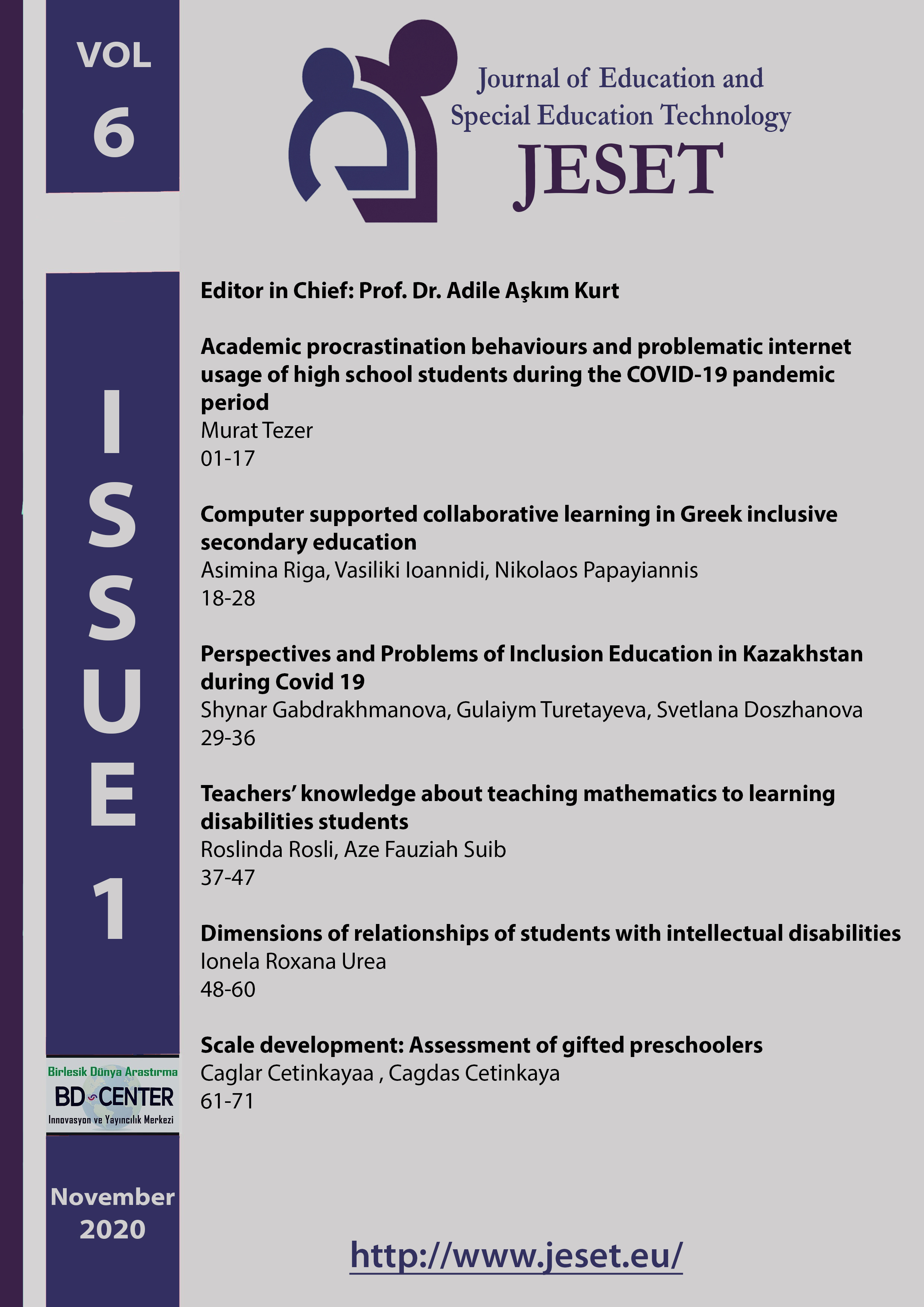Computer supported collaborative learning in Greek inclusive secondary education
Main Article Content
Abstract
Computer-assisted collaborative learning is known to challenge and motivate students with Learning Disabilities. The present paper therefore intends to briefly present the benefits of computer-supportive collaborative learning activities as well as demonstrate specific practices and paradigms concerning the inclusion of students with Special Educational Needs in Secondary Education in Greece. To reach this target, the researchers proceed to an ICT literature review associated with computer-mediated collaborative and inclusive learning methods in Greek Secondary Education. According to literature review findings, these learning methods are considered beneficial in terms of learning purposes directed to students with learning disabilities since they do raise students’ interest and engagement in the learning procedure, enhance their cognitive abilities and assist them to develop self-esteem, problem-solving strategies and, finally, a solid collaborative attitude. Therefore, this paper concludes that there has been a lack of significant progress with respect to establishing collaborative inclusive learning environments in Greece.
Key words: Collaborative learning; computer-supported education; Inclusive education; Special Educational Needs and/or Disabilities; SEND
Downloads
Article Details

This work is licensed under a Creative Commons Attribution 4.0 International License.
International Journal of Special Education and Information Technologies (JESET)is an Open Access Journal. All articles can be downloaded free of charge. Articles published in the Journal are Open-Access articles distributed under Creative Commons Attribution-Non-Commercial-NoDerivatives 4.0 International.
Birlesik Dunya Yenilik Arastirma ve Yayincilik Merkezi (BD-Center) is a gold open access publisher. At the point of publication, all articles from our portfolio of journals are immediately and permanently accessible online free of charge. BD-Center articles are published under the CC-BY license [Attribution 4.0 International (CC BY 4.0)], which permits unrestricted use, distribution, and reproduction in any medium, provided the original authors and the source are credited.
Gold open access publishing services, which include end-to-end support – from research integrity and peer review, through to innovations in technology and artificial intelligence as well as global dissemination – are supported through Article Processing Charges (APCs). APCs enable the long-term stability of our program, and facilitate equal opportunity to seek, share and create knowledge that benefits all society without restriction. Quality is maintained through rigorous peer review and support through technological innovations, such as our Artificial Intelligence Review Assistant (AIRA).
Open access to the results of publicly funded research is of huge value, offering significant social and economic benefits. The open access publishing model, defined by the Berlin Agreement in 2003, improves the pace, efficiency, and value of research to society. By its very nature, it improves the visibility of authors' work and enables better scholarly exchange, and therefore, the potential impact of that work.
By eliminating the barriers that block the free distribution of knowledge, open access enables scientists to collaborate better, innovate faster, and deliver the solutions we need for healthy lives on a healthy planet.

